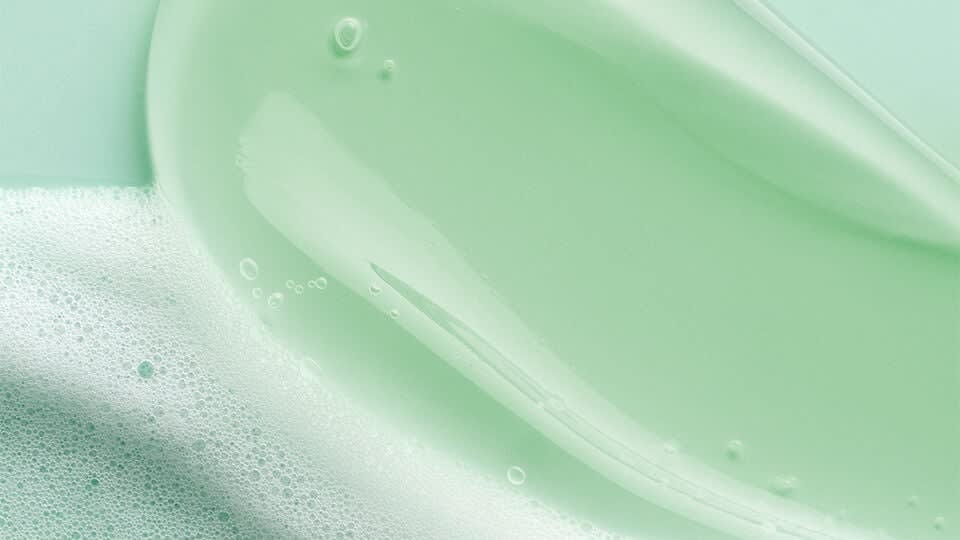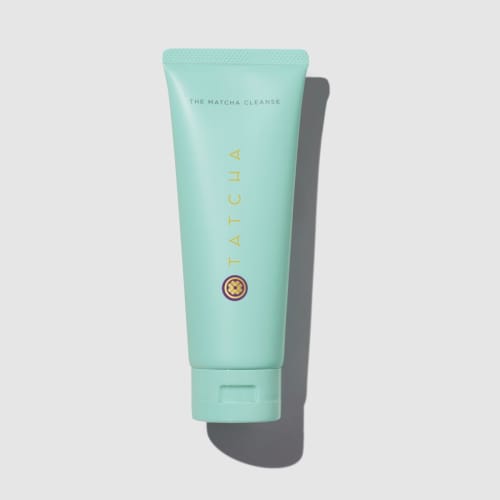When it comes to oily skin, experts say there’s nothing more important than cleansing your skin. But before you do, you’ll need the right product for the job.

The goal of any face wash worth its molecular weight is to cleanse the skin—ridding it not only of makeup, dirt, or impurities it has collected throughout the day, but also rinsing away byproducts of skin’s natural processes, like excess sebum or dead skin flakes.
Across each and every skin type, the main function of these skincare products doesn’t change. But how they achieve that end result—skin that is clean, nourished, and ready-for-what’s-next—depends on a few key formulation elements. Just as the cleaning products you use for your home might change depending on the particular surface you’re working with, so might your face cleanser be chosen depending on the properties of your skin.
This is why dry skin, for one example, might benefit from an oil cleanser, or even a double cleanse, which can supply skin with lipids that will help it retain moisture. On the other side of the skin spectrum, things can get trickier. The American Academy of Dermatology Association recommends those with oily skin wash their face twice a day only using gentle, foaming formulas. “Many people believe that they need to use a strong face wash for oily skin in order to dry out their skin,” their advice reads. “However, using a face wash that is too harsh can irritate your skin and trigger increased oil production.”
In fact, caring for oily skin with a face wash is a bit of a balancing act. But it’s easy once you understand how oily skin works—and how balance can be achieved.
What is oily skin?
Of the major skin types, the term “oily skin” is applied to those whose skin produces more sebum than usual. This production occurs deep within pores and hair follicles in areas known as sebaceous glands.
Sebum is good for our skin, and, in fact, it’s necessary to its structure and function. This uniquely waxy and fat molecule-rich substance helps to seal moisture within our skin—it’s kind of like a caulk that holds together our skin barriers. Of course, when our skin overproduces oil, it can lead to imbalances that may manifest as a slick facial appearance or bouts of acne.
It happens. And because it happens, a wide assortment of skincare options have been brought to market with the specific aim of balancing sebum in skin. Because of their cleansing function, and their place at the beginning of every skincare routine, face washes are often up to the task. The best cleanser for oily skin should not only keep excess sebum in check, but should also prime skin for a lightweight moisturizer to follow.
What causes oily skin?
Oily skin is extremely common. Some faces simply produce more sebum than others. Many people go through distinct periods of over-oiliness, particularly in adolescence. Some studies have estimated that as many as 75% of pubescent young adults have oily skin. But there are a number of reasons why one’s skin might be oily at any given time.
Oily skin from genetics. A fun fact about your sebaceous glands: They might be heirlooms. As a dermatologist once pointed out to Women’s Health, oily skin can be hereditary.
From hormones. In the highly specialized field of dermato-endocrinology, physicians and researchers observe how hormones affect our skin. Some hormones have a direct influence on certain aspects of skin’s function, like sebum production, which is why times of hormonal turbulence—from medications, or puberty—can be accompanied by oily skin.
From stress. The hormone cortisol is deployed in times of stress, and one of its many effects on the surrounding metabolism happens in the skin: Sebum production ramps up. (Not only does it help shore up our skin barrier, but sebum can provide other anti-inflammatory and anti-bacterial benefits, too.) As a result, water levels in the skin are depleted, and balance is thrown out of whack.
From skincare. If oily skin is a balancing act, so is skincare in general. Topical formulations can be hugely beneficial for a wide variety of applications, but too much skincare can be irritating to our skin barriers. The more damaged one’s skin barrier is, the more they might be prone to inflammatory reactions. This is why it’s always important to start a new skincare routine slowly—and to consult your dermatologist before switching up your routine.
From your diet. Some medical sources insist that there is little, if any, link between diet and sebum production. A 2009 report posited that a diet of low-glycemic foods like fruits, veggies and lean proteins was associated with fewer acne breakouts, but also noted that more research was needed to establish a clear link. A 2019 study of 84 Korean adults found that “specific dietary patterns were associated with sebum content, skin hydration, and pH.” All in all, diet should probably rank low on the list of oily skin considerations
The best cleanser for oily skin
“The most important thing you can do for oily skin is to keep your skin clean,” say the dermatologists at University of Florida Health. A good face wash is imperative. But which one is the best cleanser for oily skin?
Lighter than oils and wetter than creams, gel textures are typically recommended for those with oily skin. These water-based cleansers are slippery to the touch, often translucent, and tend to foam with a gentle lather. On an invisible level, they’re able to dip down into skin’s oil reserves. Many dermatologist-recommended gel formulas also include exfoliating ingredients like alpha and beta hydroxy acids (AHAs and BHAs) or their alternatives.
This year, Tatcha added a brand-new gel formula to its best-selling cleanser assortment: The Matcha Cleanse. Formulated without fragrance or soap, it’s ideal for oily, blemish-prone skin. But the key ingredients tell a skincare story, each one a highly potent botanical of Japanese origin. A powdered green tea, long prized for its quality and the care of its harvest, lends antioxidant nourishment, while BHA alternatives from coix seed and willow bark help detoxify and smooth out skin. Mugwort, known as ‘Queen of Herbs’, is a powerful folk remedy used to treat the body from the inside out—and its antibacterial properties have been well-noted.
After a lather and rinse of the Matcha Cleanse, skin feels fresh, nourished, and primed for other skincare steps, even makeup. A fresh start is just what oily skin needs.


